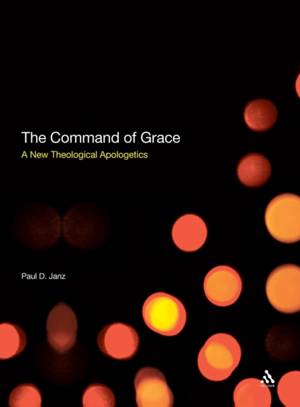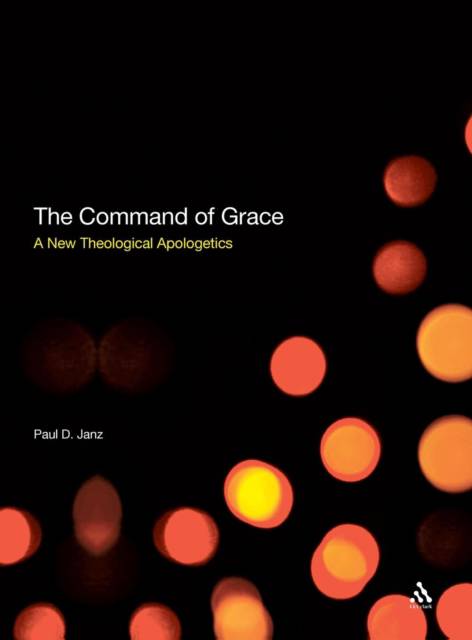
- Afhalen na 1 uur in een winkel met voorraad
- Gratis thuislevering in België vanaf € 30
- Ruim aanbod met 7 miljoen producten
- Afhalen na 1 uur in een winkel met voorraad
- Gratis thuislevering in België vanaf € 30
- Ruim aanbod met 7 miljoen producten
Zoeken
€ 373,45
+ 746 punten
Uitvoering
Omschrijving
The Command of Grace sets forth a bold new critical initiative in theological apologetics, one that advances a fundamental reassessment of theological self-understanding and method today, especially in its attentiveness to the present reality of God in revelation. Many recent, predominating trends have tended to treat theological truth as something cognitively self-guaranteeing ('tauto-theological') within doctrinal or other theoretical domains. Against this, and drawing on the philosophical heritage and Jewish thought, the book seeks to revive other basic modes of human attentiveness for fundamental theological questioning.
These are: 'causal' attentiveness encountered through the faculties of bodily sensibility; and 'appetitive' or 'motive' attentiveness encountered in the faculty of desire. Especially crucial here is the rejuvenation of the primacy of 'motive reasoning' (reasoning with regard to motivations and desires) for theology's apologetical self-understanding, in addition to its normal engagement with 'cognitive reasoning' (reasoning with regard to percepts and concepts). If God in his transcendent 'Godness' meets us in revelation not at the margins of the speculative intellect in the form of a denotatum for cognitive apprehension, but rather at the very centre of embodied life in the form of a summons to motivated action, then theology must seek to be attentive to God through all the endowed faculties of embodied-rational life: cognitive, sensible, and motive-appetitive.
These are: 'causal' attentiveness encountered through the faculties of bodily sensibility; and 'appetitive' or 'motive' attentiveness encountered in the faculty of desire. Especially crucial here is the rejuvenation of the primacy of 'motive reasoning' (reasoning with regard to motivations and desires) for theology's apologetical self-understanding, in addition to its normal engagement with 'cognitive reasoning' (reasoning with regard to percepts and concepts). If God in his transcendent 'Godness' meets us in revelation not at the margins of the speculative intellect in the form of a denotatum for cognitive apprehension, but rather at the very centre of embodied life in the form of a summons to motivated action, then theology must seek to be attentive to God through all the endowed faculties of embodied-rational life: cognitive, sensible, and motive-appetitive.
Specificaties
Betrokkenen
- Auteur(s):
- Uitgeverij:
Inhoud
- Aantal bladzijden:
- 200
- Taal:
- Engels
Eigenschappen
- Productcode (EAN):
- 9780567033581
- Verschijningsdatum:
- 1/03/2009
- Uitvoering:
- Hardcover
- Formaat:
- Ongenaaid / garenloos gebonden
- Afmetingen:
- 157 mm x 234 mm
- Gewicht:
- 453 g

Alleen bij Standaard Boekhandel
+ 746 punten op je klantenkaart van Standaard Boekhandel
Beoordelingen
We publiceren alleen reviews die voldoen aan de voorwaarden voor reviews. Bekijk onze voorwaarden voor reviews.








